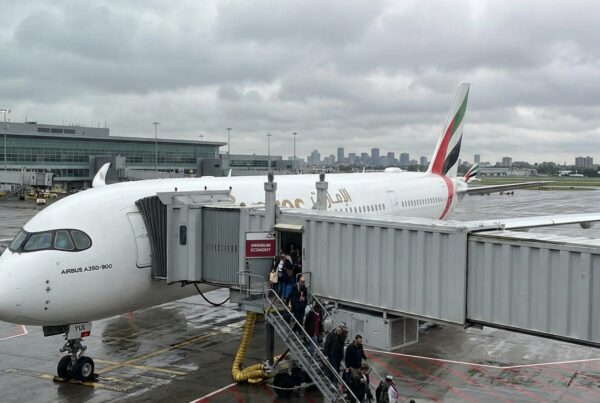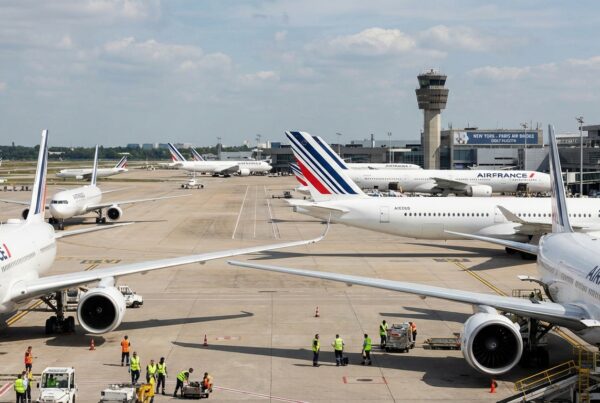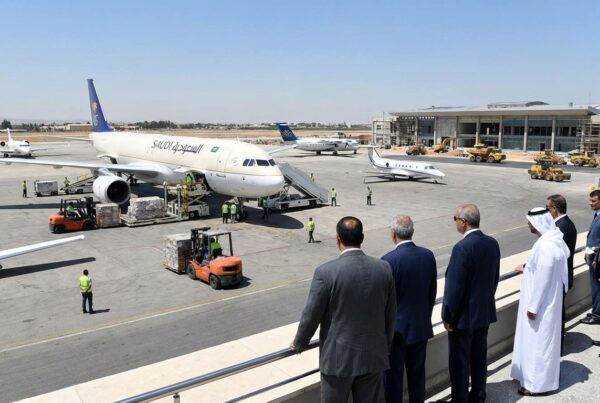Imagine an airport journey where you no longer have to take out your passport: check-in, immigration control, access to lounges and boarding are all carried out using facial recognition. This future is already underway in Dubai, where Emirates is investing heavily in the widespread use of facial recognition. biometrics and offer a totally seamless passenger experience. For French and international travelers alike, this development heralds a profound change in travel patterns and the relationship with identity documents.
Emirates in Dubai: the race to travel without a passport
According to Flywest, Emirates has embarked on a major program at Terminal 3 of Dubai International Airport (DXB) to deploy over 200 biometric cameras and offer a "one face, one token" experience. The aim is to significantly reduce waiting times by replacing manual checks with automated processes, while maintaining a high level of security. The new system is part of Dubai's drive to position itself as a pioneering global hub for the biometric travel.
How the DXB biometric pathway works in practice
The process begins with the passenger registering via the airline's application or at the airport kiosks. Once the biometric identity has been recorded, the cameras installed at the various checkpoints recognize the passenger and take him/her through baggage check-in, border control, lounge access and boarding. These areas - often referred to as Biometric Zones - allow documents to pass through without physical contact, replaced by a facial digital imprint associated with a secure token. The aim of this automation is to enhance the user experience, particularly on a hub as busy as DXB.
Benefits for travellers and airlines
For passengers, the promise is clear: less stress, safer connections and significant time savings during critical phases of the journey. For an airline like Emirates, biometrics are a lever for operational and commercial improvement: the ability to accelerate flows, reduce queues at ticket counters and optimize boarding, while offering a premium experience consistent with a brand image focused on innovation. For airports, the implementation of these systems strengthens the attractiveness of the hub in the face of global competition.
Security and confidentiality: what guarantees do travellers have?
The adoption of the facial recognition naturally raises questions about data protection. Emirates and the authorities issued in Dubai communicate security and compliance principles: data encryption, time-limited storage, restricted access and the possibility of voluntary registration. Nevertheless, for French and European travelers, interoperability with legal frameworks such as the RGPD remains a major point of attention. Passengers must be able to know the purposes of processing, exercise a right of access and, where appropriate, refuse biometric use without any notable commercial penalty.
Transparency and consent as conditions for trust
The system's success will depend as much on its technical reliability as on the trust placed in it by users. Clear communication on the duration of data retention, technical guarantees (tokenization, anonymization) and recourse procedures in the event of an incident will be decisive in ensuring that the travel without a passport is perceived as progress rather than an intrusion.
Expected impact in Europe and for French travellers
This deployment at DXB serves as a laboratory for a worldwide trend towards the generalization of biometric check-in procedures. For France and European airports, several lessons can be drawn: the importance of coordinated investments between airlines, airport managers and authorities; the need to adapt infrastructures to accommodate biometric flows; and the opportunity to improve connectivity and the customer experience on long-haul routes.
For French travelers, the impact will be a growing expectation for frictionless services on international flights: faster boarding, optimized connections and fewer document constraints in transit. French airlines and airports will need to anticipate these expectations in order to remain competitive on long-haul routes and transcontinental hubs.
Where do we go from here? dematerialized passenger journey ?
The expansion of biometrics will depend on players' ability to reconcile operational efficiency, security and respect for individual freedoms. While projects in Dubai show that a "passport-free" route is technically viable and commercially attractive, its widespread adoption will require harmonized legal frameworks, interoperability standards and total transparency vis-à-vis travelers. In the short term, the most daring airlines and hubs will offer differentiating experiences; in the medium term, biometrics could become a standard feature of international air travel, profoundly changing the way we prepare for and experience our journeys.
Flywest is keeping a close eye on these developments, paying particular attention to the practical consequences for passengers and air transport operators.




